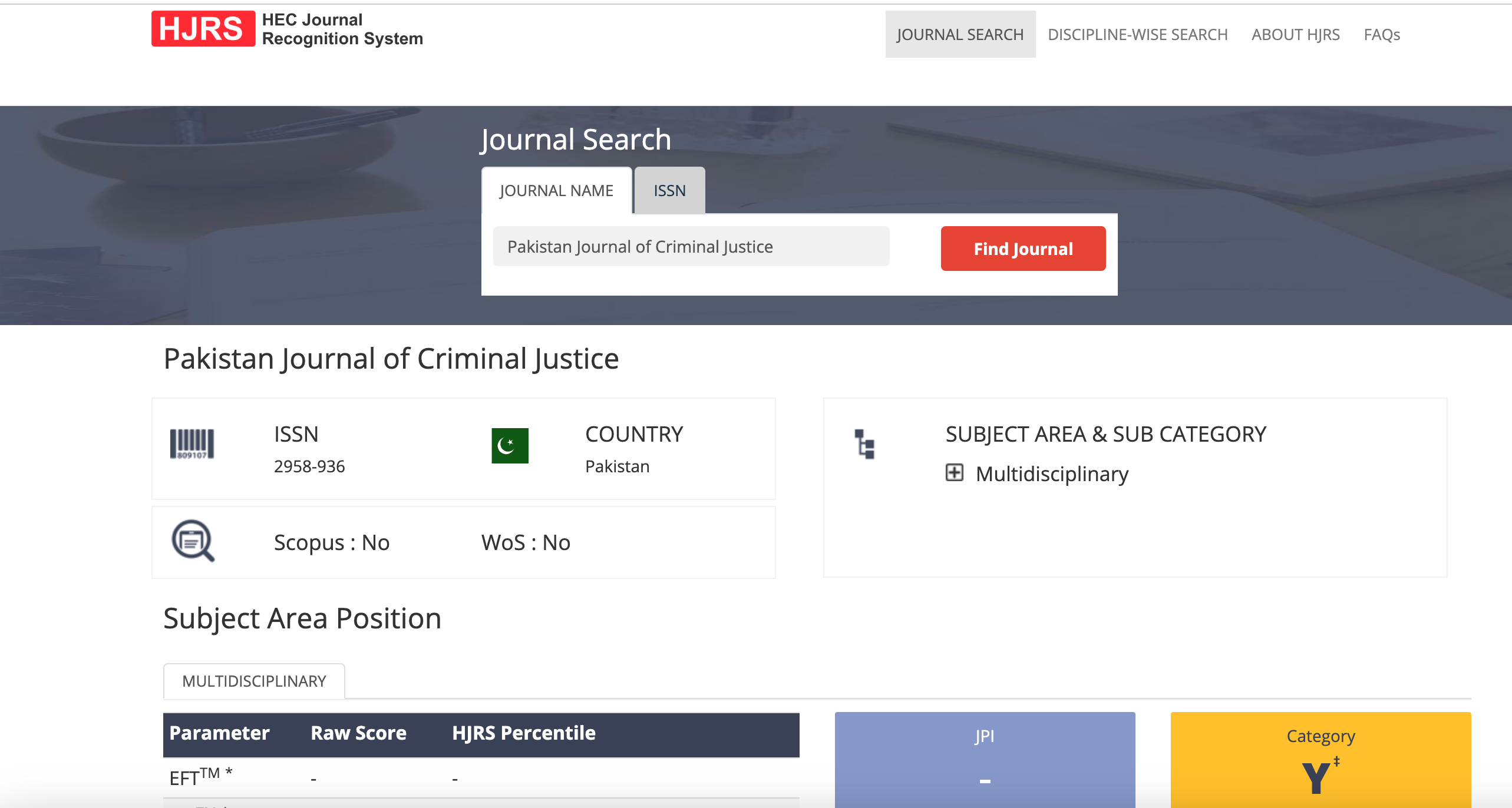Leveraging Artificial Intelligence for Enhancing Evidence Integrity and Chain of Custody in Pakistan’s Criminal Justice System
DOI:
https://doi.org/10.62585/pjcj.v4i1.103Keywords:
cyberlaws, AI, protective custody, chain of custodyAbstract
The use of Artificial Intelligence (AI) into Pakistan's Criminal Justice System (CJS) offers a significant opportunity to augment evidence integrity and refine the chain of custody. The escalating obstacles of data management, resource limitations, and ethical dilemmas necessitate the urgent development of creative solutions. This study examines the prospective applications of AI in predictive policing, automated reporting, and risk assessment tools, while also addressing the problems and ethical implications related to these technologies. This study seeks to analyze the existing condition of the Criminal Justice System (CJS) and propose actionable recommendations to establish a framework for utilizing AI to enhance the efficiency, transparency, and equity of the justice system in Pakistan. This research aims to clarify methods for the responsible and successful integration of AI, safeguarding individual rights while improving public safety and trust in law enforcement.
Downloads
Published
How to Cite
Issue
Section
License
Copyright (c) 2024 Mahrukh Tanveer, Muhammad Babar Shaheen, Khalil ur Rehman Tariq, Amna Tanveer

This work is licensed under a Creative Commons Attribution-NonCommercial 4.0 International License.





